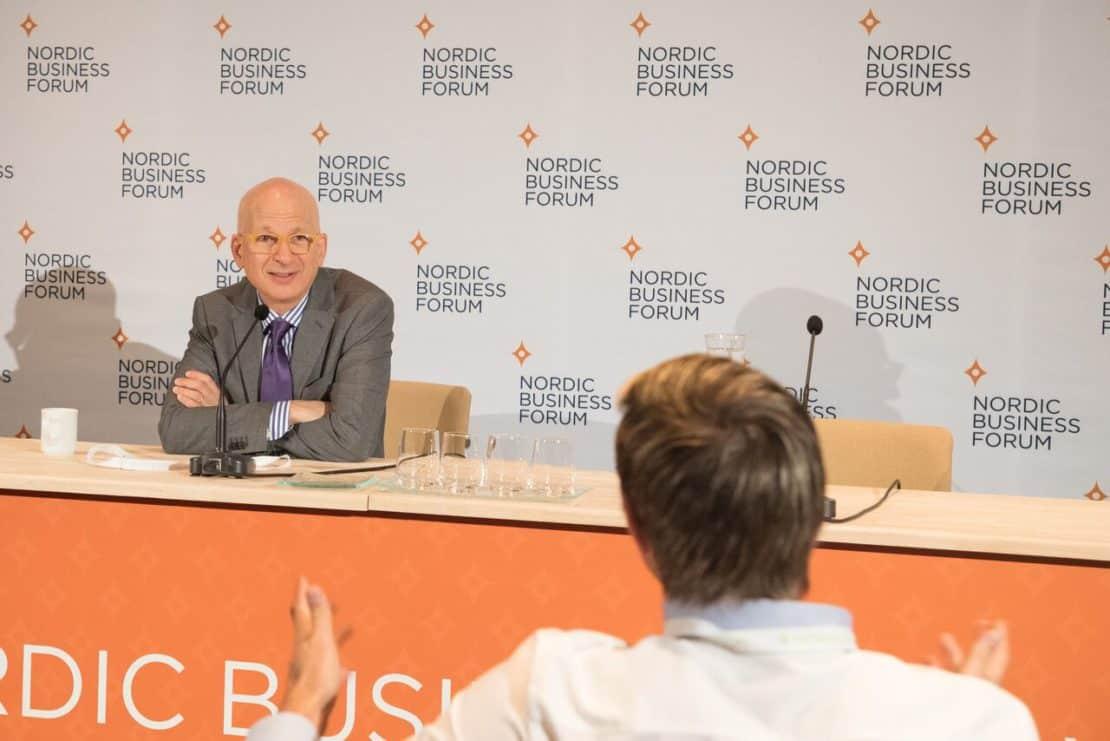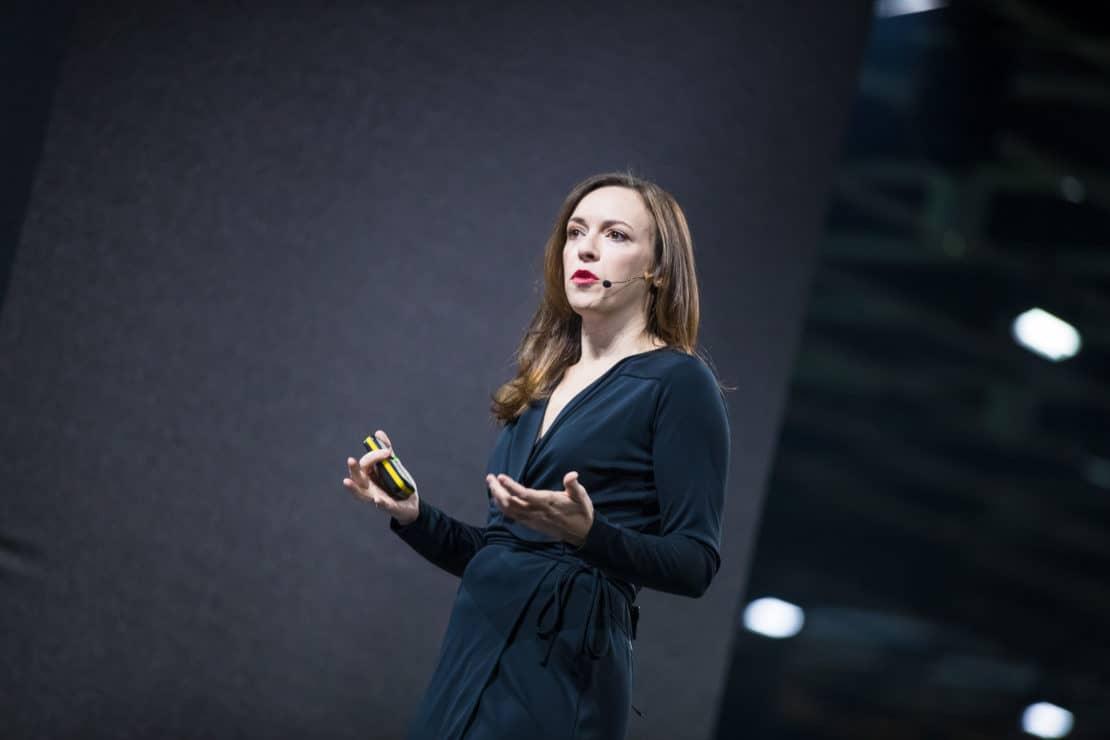7Oct2016
Seth Godin fielded questions from the press to discuss a range of issues from the importance of empathy and knowing good criticism to recognising fear and embracing risk.
Anti-intellectualism vs the cult of the expert
Immediately there was a rigorous debate about how Finnish culture suffers a false humility about asking questions and putting themselves forward.
“Everyone here [in Finland] tells themselves it’s OK to be shy and not ask questions and to just take good notes – but it’s not! When it was just Finland vs Finland you could say what you want, but now it’s a worldwide race to get attention, to make a connection. The people who have more bad ideas win. The people who speak up more win.” This was challenged, pointing out that Finnish culture has a healthy respect for the expert which has perhaps made them reticent. Seth counters by questioning the knowledge of the so-called experts. Then the rise of anti-intellectualism was raised.
“There’s a huge difference between anti-intellectualism, that is wilfully ignoring that which is known, such as refusing to vaccinate your kids. The cult of the expert is that someone else knows the right answer. That someone else can reassure you and provide you a map that you don’t have. That’s not true. Experts are wrong all the time, that’s what makes them experts. By going through the process of doing something wrong that’s how we know not to do it again.”
The real meaning of gifts
Considering the difficulty some people have in giving and accepting gifts, Seth explained, “what I mean when I talk about gifts is not favours or presents [which is] ‘I gave you something, now you owe me something in return’. That’s a thinly veiled version of what I believe. When I give someone a gift I mean ‘here, this is yours – you owe me nothing’. What happens as a result of this gift is that we become closer to each other and a connection is made. This is enough. Not because I’m going to get business out of it but because it’s good, because it earns trust. It shouldn’t be a tactic.”
Finding your great critic is the haystack of naysayers
“What you say to someone who gives you useful, generous criticism is thank you! This type of criticism is super rare. But how do you tell them apart from naysayers? For me it’s about empathy. It’s not them saying ‘I don’t like this’. I don’t care if you like it! The question is, if someone who believes X and who wants Y, if they encounter this will it help them? It’s about empathy.”
Clarity about risk
“There’s fundamental misconceptions about the terms. Think about how many people that don’t work at Nokia who used to. Nokia thought they were being risk averse but they actually took a huge risk by not releasing a smartphone. They knew how, but they didn’t do it. The most risk averse thing we can do feels risky. That is the nature of great art, that’s the nature of revolutions. In Finland there is a significant problem. You think you are being risk averse but you’re not, your taking a huge risk by not doing the thing that feels risky.”


